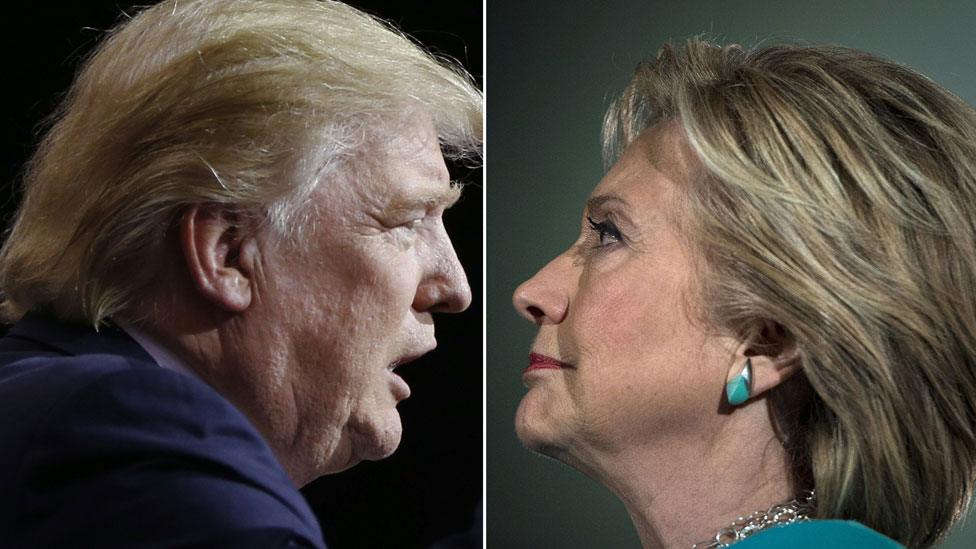US election: Is Trump or Clinton going to win?
- Published

On the eve of the presidential election, Hillary Clinton appears to be opening up some daylight between her and Donald Trump in the final round of national opinion surveys.
This shouldn't come as a total surprise, since a glance at the past six months of polls show that every time it looks like Mr Trump is going to surpass his Democratic opponent in the standings, the trend reverses itself.
The American people, perhaps, could never quite get their heads around the prospect of a Trump presidency, and countervailing forces asserted themselves every time it looks like that might be a reality.
If that's the case here, then the timing may be just right for a comfortable Clinton win.
None of the polls, of course, take account of how voters are reacting to the FBI clearing Clinton of criminality on the latest batch of emails. Here's my blog on how that twist may impact the election.
These are the latest predictions from the number crunchers at some US media:
New York Times Upshot, external: Clinton has 84% chance of winning
FiveThirtyEight, external: Clinton has 65% chance
HuffPost, external: Clinton has 98% chance

Of course, the US election isn't won based on national preferences, it's a state-by-state slog to reach 270 electoral votes. The latest round of battleground polling shows there are still just enough toss-up states to allow Mr Trump to win the presidency.
To prevail the Republican would have to either clear the table when it comes to these states or post a surprise win in a place like Pennsylvania, Michigan or Virginia, where polling shows Mrs Clinton ahead.
Such a shoot-the-moon scenario is certainly possible, and it could be aided by polling that underestimates white voter turnout or overestimates Mrs Clinton's support in key constituencies like blacks and the young.
For this to become a reality, however, Mr Trump would essentially have to be perfect or polling would have to be off in a variety of disparate states that have decidedly different electorates. An error in New Hampshire polling, for instance, wouldn't mean expectations in Florida would be more likely to be wrong. A miss in Michigan would have little bearing on the fate of Colorado.
Mr Trump would also have to count on the evidence of massive Hispanic turnout in early voting not panning out when votes are counted on Tuesday night.
Heading into election day, the Clinton team has reason for cautious optimism. A Trump win at this point would have to be considered a modest (but far from unprecedented) upset.

Predict the president


